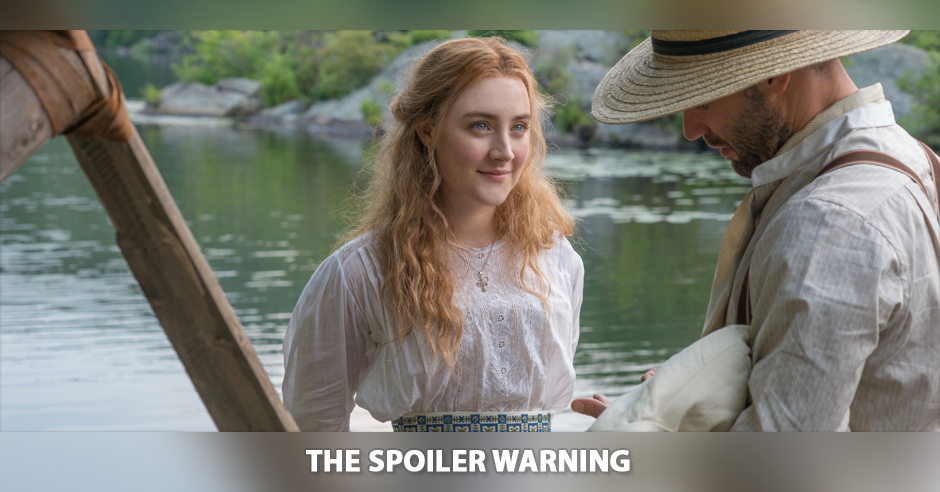It feels presumptuous to review an adaptation of a play I’ve never read. I mean, reviews like this always feel presumptuous, but this time it stretches the breaking point. Much, I’m sure, has been written about Anton Chekhov’s The Seagull — its criss-crossing courtships (a love hexagon if I’m counting right?), its meta-commentary on pretension in art, its mirroring of creative and romantic obsessions — and here I am, basing my opinions on a 98 minute treatment 120 years after the fact. Featuring Brian Dennehy wheeze-laughing his way through a drunken uncle routine (but enough about the Q&A).
On the other hand, maybe this is a good test; after all, stage-to-screen adaptations often lean heavily on nostalgia / some winking pact among actors playing dress up. In short, they tend to feel overly satisfied in their own delivery. Could I, a Philistine whose only familiarity with Chekhov is his namesake gun, still find something to enjoy?
I, thankfully, could. Which isn’t to say that The Seagull (3.5/5) avoids any those self-satisfied tropes. It’s just that it opens itself wide enough to let me in on the whimsy. In Joss Whedon’s (great) adaptation of Much Ado About Nothing, he chose to keep the Shakespearean vernacular even while relocating the speakers to 21st century Los Angeles; a mishmash of classic and contemporary that captured the overtly play-pretend aspect of theatre in a way a direct period piece might render inert. The Seagull hues much closer to the original, in both setting and (translated) text, but there’s something distinctly modern in the telling. The best word I can find to describe this sort of film is “shimmering.” Glossily edited and romantic to a fault, it’s anchored by a stellar ensemble who are visibly, contagiously, in love with the material. Billy Howle chews scenery as the tragicomic Konstantin, an aspiring young playwright who wants his art to bleed — waxing about life, death, and universal themes like an Intro to Philosophy student. His naive, often inept (but always sincere) heart bleeds in kind; particularly for Nina, an idealistic young actress (Saoirse Ronan) who dreams only of being remembered. She likes Kostya just fine, she just doesn’t get his obsession with “challenging” the audience at the expense of being beloved by them. Far more attractive is Boris (Corey Stoll), an older, accomplished author who has managed to achieve fame without shedding a drop. He sees art as an obligatory habit, some nagging bodily function to be used and discarded — observe the world, write it down, sell it, repeat. He can control it no easier than he can control his attraction to Nina, much to the chagrin of his lover Irina (Annette Bening), a once-famous actress who also happens to be Konstantin’s mother.
I could go on. There’s Elisabeth Moss’ Hot Topic Masha, Brian Dennehy’s curmudgeonly Sorin, Jon Tenney as a Doctor who might also be auditioning for Dos Equis’ Most Interesting Man In The World. Their tangle of unrequited loves is hard to keep track of but easy to enjoy; there’s a playful, slapstick rhythm to the proceedings that the cast totally nails. There are also quiet moments of heart, particularly from Howle, who morphs over the course of the film from satirical hyperbole into a character I genuinely felt for. In his more sober monologues, he reminded me of Tom in The Glass Menagerie (particularly as played by Malkovich); a little over-pronounced and prone to false grandeur, but soft and reflective just the same. Those moments, though rare, help add a “point” to what would otherwise be a fun but trifling affair.
I don’t know if it’s necessary, or what, exactly, it set out to accomplish. But I was won over by this one’s charms pretty quickly. It felt appropriately theatrical without ever seeming goofy, and the concepts it wrestles with (art, love, and the perils of being obsessed or flippant about either) are well worth the watch. Even if the film, like Irina, is a bit too in love with itself. Chris and I review The Seagull in another Tribeca bonus episode:
